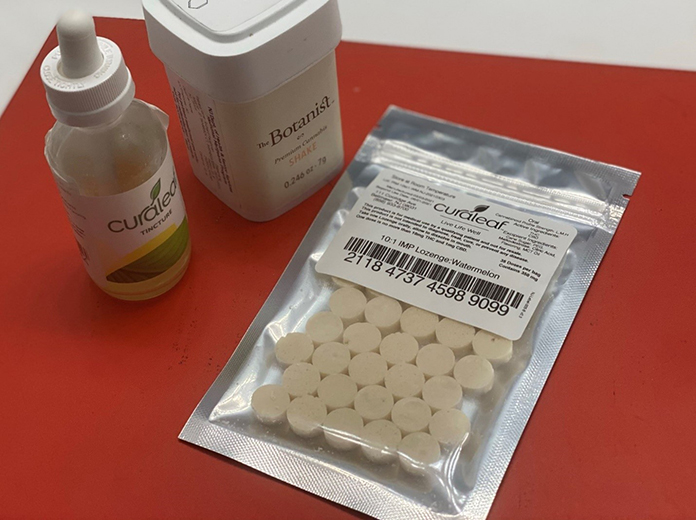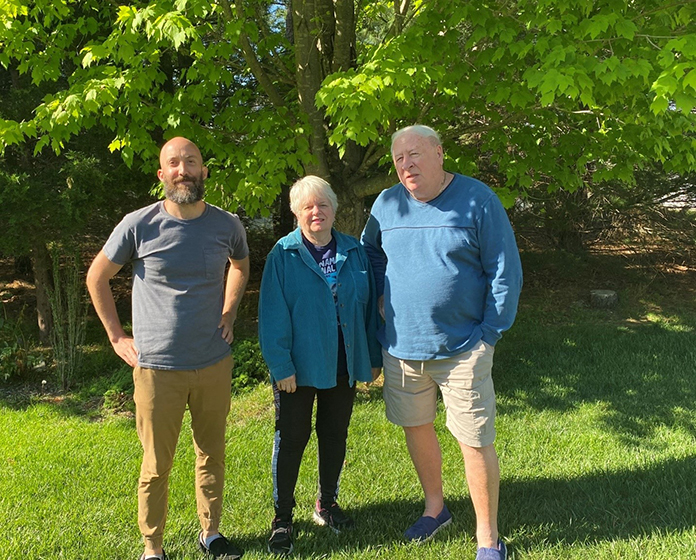
OCEAN COUNTY – When Gerry McGrath learned Barnegat Township planned to ban local marijuana sales, she decided she needed some answers from her town’s governing body.
Gerry, a retired nurse, saved her questions for the public hearing on the ordinance that would ultimately prohibit recreational cannabis sales in the southern Ocean County community.
“I have a problem with this,” said Gerry. “We have a lot of seniors, veterans, and other people who use cannabis for medical reasons. I know we have medical cannabis available, but they have to travel outside the township to get this medication.”
Barnegat Township Attorney Christopher Dasti Esq. offered Gerry some clarification. The governing body only intended to oppose recreational sales and cultivation.
According to Dasti, medical marijuana dispensaries and recreational cannabis distribution require different types of licenses. The new ordinance does not arbitrarily exclude a medical facility from setting up shop in Barnegat.
Richard Otto Schmid heads up the Maximillian Foundation and congratulated Barnegat township officials on their decision to ban pot. Schmid, who lost his son to heroin, referred to marijuana as the gateway drug.
Gerry and her husband Don sat silently as Schmid spoke in opposition to cannabis. They easily understood the emotional impact of losing a child. The McGrath’s 28-year-old son, Sean, died from a rare gastrointestinal cancer in 2004.
As Sean struggled with his illness, a specialist from Columbia Presbyterian Medical Center suggested that marijuana would help him. One of the residents even offered to get it for them, but Gerry wasn’t about to let the doctor risk losing his medical license.

Don and Gerry felt desperate and would do anything to offer Sean comfort. They figured out how to find marijuana on their own and decided to ignore claims it would lead to harder drugs.
“I decided I’d rather visit my son in a rehab center than a cemetery,” shared Don.
Sean’s parents witnessed firsthand how a simple weed provided their son with relief from debilitating pain and overwhelming nausea. It was the best they could hope for as their son battled Stage 4 cancer and died two years after his diagnosis.
New Jersey did not legalize medical marijuana until Governor Jon Corzine signed the New Jersey Compassionate Use Medical Marijuana Act in January 2010. Governor Chris Christie stalled the legislation – and New Jersey’s medical marijuana program didn’t actually start until late 2012.
Grassroots Organizers
During an interview at their Barnegat home, the McGraths revealed they were no strangers to speaking with government officials about cannabis. As leaders of the Coalition for Medical Marijuana – New Jersey, the couple advocated tirelessly to legalize cannabis for its therapeutic benefits.
“We had a rally in our backyard (in Robbinsville,) where Reed Gusciora (then Assemblyman, now Trenton mayor) announced introduction of the bill,” Don said. “He co-sponsored it with Assemblyman Michael Carroll. Senator Nick Scutari introduced it in the senate.”
The process began in 2004, with various organizations signing on to support the Coalition’s efforts. The McGraths credit the Drug Policy Alliance with helping them pursue the medical marijuana cause.
“Montel Williams came to speak on the benefits,” shared Don. “Kellyanne Conway was our press agent.”
Legislation finally passed both New Jersey houses in 2009 – but required the group to sit down with virtually every senator and representative in the state. They needed, and gained, bipartisan support.
A Patient Shares Other Issues
Scott Ward, 36 recently returned to New Jersey from Oregon. He became acquainted with Gerry and Don during the fight to get medical marijuana approved in the state.
Ward enlisted in the Marines and planned on ultimately joining the State Department. Diagnosed with multiple sclerosis, he became medically separated due to a back injury. Ward was shocked when he saw how medical marijuana helped him.
“I never smoked weed, but I decided to try it,” Ward said. “I was miserable and after I smoked it, I was able to get up. I hadn’t eaten in a couple of days and surprised my mother when I went in the kitchen to get something.”
The whole thing did not make much sense to Ward. Doctors wanted to give him opiates and muscle relaxers for the MS. The fatigue was overwhelming. Cannabis worked to bring him relief. However, Ward suggested that New Jersey’s approach to legal marijuana differed from other states.
“For one, other states that have passed recreational marijuana allow you to grow it at home,” shared Ward. “New Jersey is penalizing low-income people. In Oregon, you can get an ounce of cannabis for $100. Here, it’s $500 an ounce.”
According to Ward, the dispensaries are filled with people of all ages, including many who are wheelchair bound. Cannabis is available in different forms other than smoking it. Patients receive recommendations regarding what strains work best for relaxation, for seizures, for spasms – or other maladies.
“I was in such bad shape that the first thing I did in the morning was smoke cannabis,” Ward said. “I had such severe muscle spasms, couldn’t turn and couldn’t eat without vomiting.”
After using cannabis for twelve years to relieve his pain, Ward decided to try Eastern medicine. He suffered no withdrawal symptoms and feels good now. He’s optimistic things will remain the same.
Access For Marijuana Patients
Although medical marijuana patients have had access to cannabis for a few years, the program is far from perfect. No dispensaries exist in Ocean County at all. Southern Ocean County patients travel down to Egg Harbor, Bellmawr or Atlantic City to fill their prescriptions. Others go further north to Eatontown and Woodbridge.
Many Ocean County municipalities have joined Barnegat in passing ordinances banning any type of recreational cannabis businesses in their communities. Ocean Township (Waretown) voted on a local law last year that allows for a medical dispensary. No one has set up shop just yet.
Those in search of recreational cannabis may be in for a bit of a hunt. They join over 100,000 patients in New Jersey’s medical marijuana program – many who can’t afford cannabis or find it close to home.






